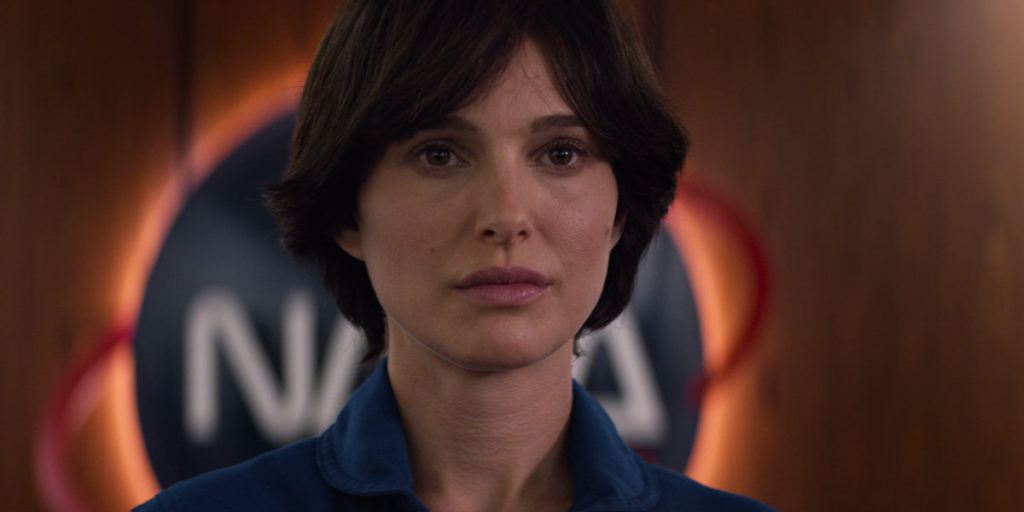Lucy In The Sky

Natalie Portman as Lucy Cola in LUCY IN THE SKY. Image courtesy TIFF.
Attempting to qualify for the upcoming Orion mission, Lucy Cola (Natalie Portman) is a Mission Specialist for NASA. Her unassuming husband, Drew (Dan Stevens), runs public relations. Like most teenagers, their daughter Blue Iris (Pearl Amanda Dickson) presents a challenge in parenting—particularly for a mother whose excuse for her absenteeism likely isn’t one you hear often at Parent-Teacher conferences.
The movie is, “Inspired by real events,” particularly the exploits of former NASA astronaut Lisa Nowak. A fictionalized re-telling, Noah Hawley’s LUCY IN THE SKY bears a title desperately in search of a meaningful connection—and we can feel it.
Lucy’s marriage eroding, she descends into alcohol abuse, an extramarital affair with fellow astronaut Mark Goodwin (Jon Hamm), and finds herself driving 900 miles from Houston to Orlando to confront Goodwin’s other lover, Erin Eccles (Zazie Beets). In the process, she’s kidnapped her daughter across state lines. Truly bizarre are the weirder details omitted from this fictional version of Nowak’s exploits—including photographs of bondage and the fact that Nowak wore diapers to speed up the road trip.
Further distancing itself from a more interesting reality, director Hawley and screenwriters Brian Brown and Eliott DiGiuseppi introduce all sorts of expository dialogue between capable astronauts. Explaining who Michael Collins is serves no purpose to the story or the characters. When such details appear purely for our benefit, they reek of directorial condescension and ignorance at the same time. I know who Michael Collins is, which is why I’m very puzzled why Edgar Mitchell wasn’t quoted instead. But never mind.
The problems with Lucy extend well beyond minutiae. The film feels like it wants to be a travelogue of a state of mind, with its frame aspect changes to, I suppose, depict Cola’s mental state, her feelings of isolation, or compartmentalization, or … something? Aside from missing the opportunity to use some kind of effect to more clearly simulate the narrowing periphery of tunnel vision—the metaphor I think they were going for—the movie is such a harum-scarum hodgepodge I can’t tell if we’re supposed to feel sorry for Lucy, revile her, or be bored by her.
The film tries to go in too many stylistic directions at once—at one point even employing the serially-abused SnorriCam—consequently never returning to Earth, to a place with which we can relate. Nowak’s real life affair and near-psychotic breakdown are too much the stuff of a COPS episode to Kubrick into an esoteric journey of the soul, instead amounting to emotional prolapse.